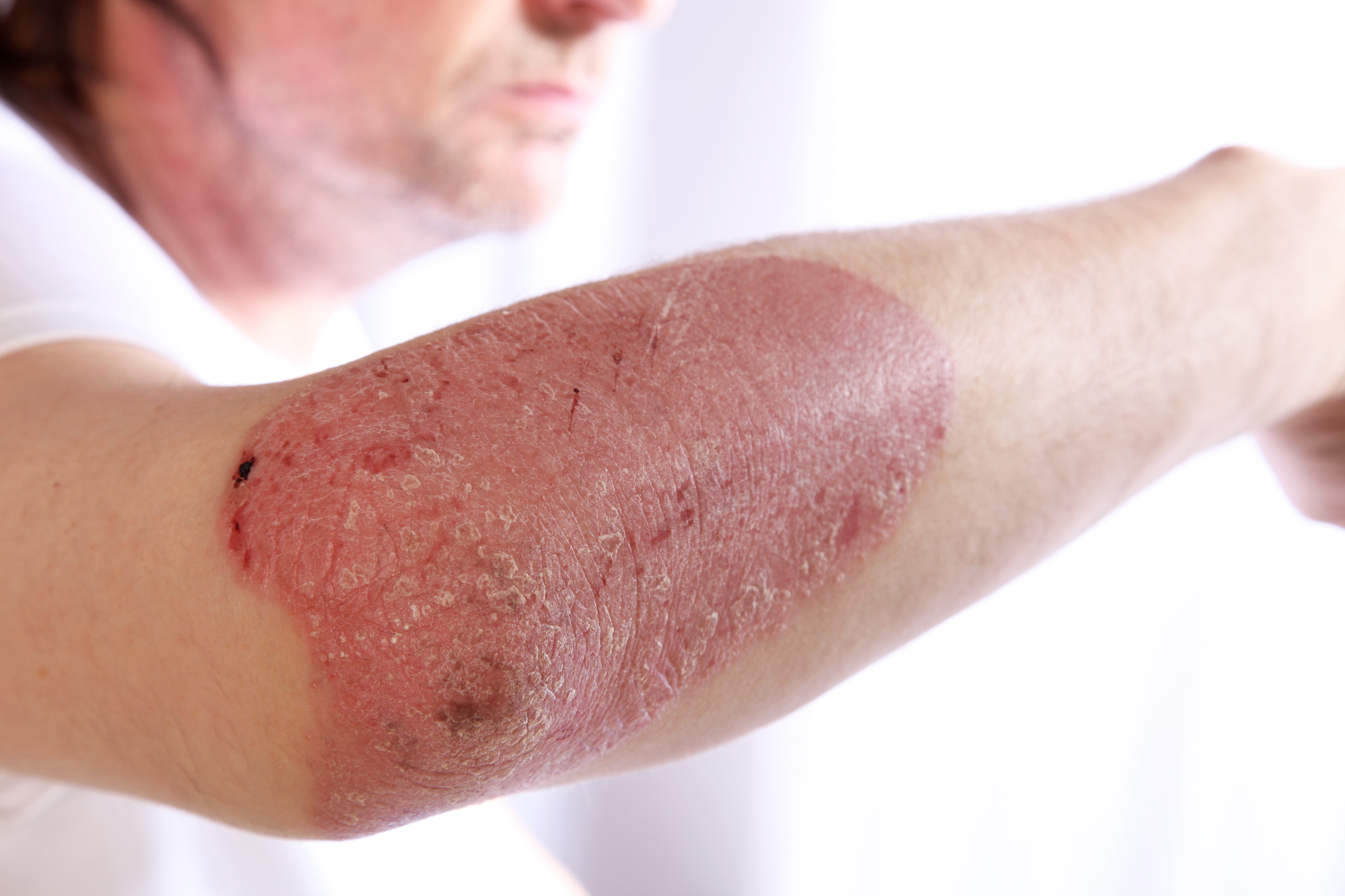 Plaque psoriasis is a chronic disease characterized by the appearance of patches of thick, red, and dry skin. While the disease shows itself on the surface of the skin, its origins are tied to the immune system. “Faulty signals from the immune system tell skin cells to grow too quickly, resulting in new skin cells forming in days rather than weeks,” says Dr. Adam Mamelak, a board certified Dermatologist in Austin, Texas. “Rather than shedding, these skin cells build up and form the thick plaques visible on the surface of the skin.”
Plaque psoriasis is a chronic disease characterized by the appearance of patches of thick, red, and dry skin. While the disease shows itself on the surface of the skin, its origins are tied to the immune system. “Faulty signals from the immune system tell skin cells to grow too quickly, resulting in new skin cells forming in days rather than weeks,” says Dr. Adam Mamelak, a board certified Dermatologist in Austin, Texas. “Rather than shedding, these skin cells build up and form the thick plaques visible on the surface of the skin.”
Plaque Psoriasis
Plaque psoriasis is also referred to as psoriasis vulgaris – “vulgaris” means common. “Around 80 percent of people who suffer from psoriasis have this form of the disease,” explains Dr. Mamelak. The disease is not contagious, but it can be uncomfortable for people who have it. These patches can be itchy, and sometimes painful, particularly when they crack and bleed. Patches typically appear on the scalp, knees, elbows, and lower back.
7.5 million people in the United States have psoriasis, with men and women affected roughly equally. “Although the mechanism of this disease is not completely elucidated, people with plaque psoriasis often have a family history, and are thought to develop the disease because of the genes that they inherited,” says Dr. Mamelak. That means the disease can’t be prevented, but it can be treated.
Treating Plaque Psoriasis
The first line of treatments include topical products that slow down skin cell growth and reduce inflammation. An alternative is phototherapy, which exposes the skin to ultraviolet light that penetrates the skin and slows skin cell growth. Patients may also choose to take medication that targets the autoimmune roots of psoriasis. These systemic medications, which work throughout the body, are available as pills or injections and are typically reserved for those whose psoriasis does not respond to other treatments.
The severity of psoriasis varies from one patient to another. Psoriasis has also been associated with other health conditions including arthritis, obesity, diabetes, even heart disease, and this does not include the emotion effects of the condition. Any treatment decisions should be made under the advice and guidance of medical professionals.
Contact Us
Plaque psoriasis cannot be cured, but it can be managed. If you have the condition, or if you think you do, please contact us. Our professional staff can guide you to treatment options that are best for you.
